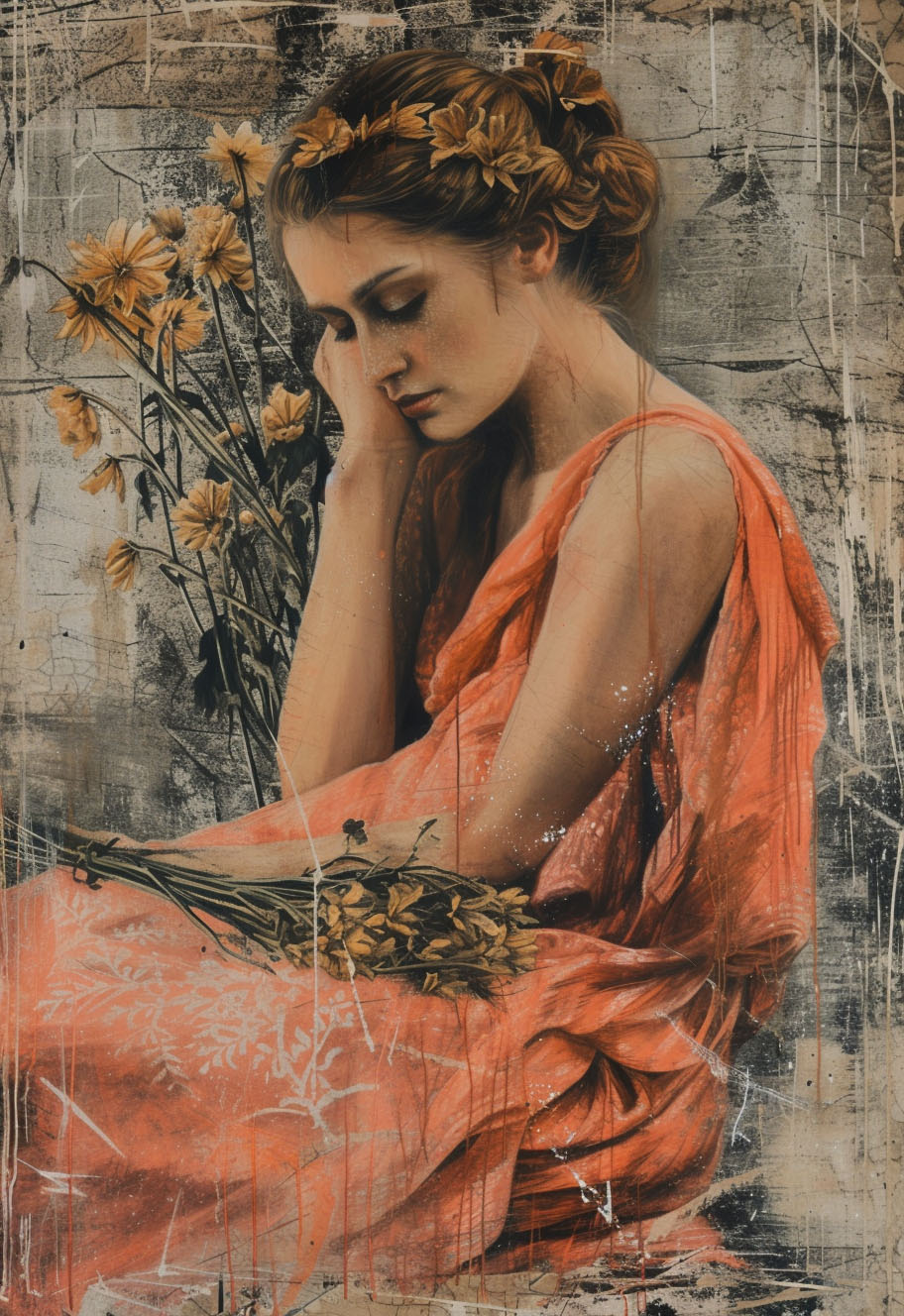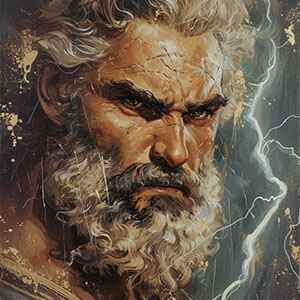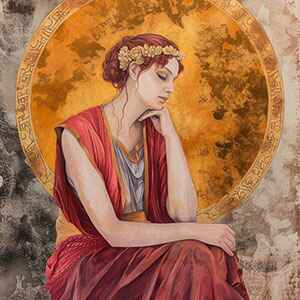Hebe
In Greek mythology, Hebe is the goddess of youth and the cupbearer of the gods. She is the daughter of Zeus and Hera, holding a position of honor among the Olympian deities.
Parents: Zeus & Hera
Siblings: NA
Consort: Heracles (Hercules)
Children: Alexiares and Anicetus

Parentage: Hebe is the daughter of Zeus, the king of the gods, and Hera, the queen of the gods. She is one of the divine offspring of this powerful couple.
Youth and Vigor: Hebe personifies youth, vitality, and the prime of life. She is associated with the physical and mental qualities of youthfulness.
Cupbearer of the Gods: Hebe serves as the cupbearer to the gods on Mount Olympus, providing them with nectar and ambrosia, the divine foods and drinks that confer immortality. Her role in this capacity highlights her connection to the perpetuation of the divine order.
Marriage to Heracles (Hercules): Hebe is best known for her marriage to Heracles (Hercules) after his apotheosis. Heracles, having completed his labors and achieved immortality, marries Hebe, symbolizing the hero's acceptance into the divine realm.
Children: Hebe and Heracles are considered the parents of Alexiares and Anicetus, two minor deities associated with defense and protection.
Hera's Cupbearer: Hebe's role as the cupbearer to the gods is sometimes seen as a way for Hera to reconcile with her husband, Zeus. Hebe, being Hera's daughter, serves as a unifying figure within the divine family.
Youthful Appearance: Hebe is often depicted as a youthful and graceful goddess, emphasizing her role as the embodiment of eternal youth.
Worship and Cults: While Hebe does not have extensive cult worship in ancient Greece, she is occasionally mentioned in rituals and festivals. Her image might have been incorporated into the broader worship of the Olympian deities.
Attributes and Symbols: Hebe is typically portrayed with a cup or a pitcher, emphasizing her role as the cupbearer. She may also be depicted with a wreath of flowers, reflecting her association with youth and beauty.
Cultural Influence: Hebe's character has been depicted in various works of art, literature, and later cultural references. Her role as a symbol of youth and the divine cupbearer contributes to the overall tapestry of Greek mythology.
Hebe's position as the cupbearer to the gods and her marriage to the hero Heracles symbolize aspects of immortality and the continuity of divine lineage. She represents the eternal qualities of youth and plays a supportive role in the divine festivities on Mount Olympus.
Immediate Family
Quick Facts
- Hebe is the daughter of Zeus and Hera.
- She personifies youth, vitality, and the prime of life.
- Hebe serves as the cupbearer to the gods on Mount Olympus.
- Her marriage to Heracles symbolizes the hero's acceptance into the divine realm.
- Hebe and Heracles are the parents of Alexiares and Anicetus.
- She is sometimes seen as a way for Hera to reconcile with Zeus.
- Hebe is often depicted as a youthful and graceful goddess.
- While not extensively worshipped, Hebe is occasionally mentioned in rituals and festivals.
- She is typically portrayed with a cup or a pitcher.
- Hebe's character has been depicted in various works of art, literature, and later cultural references.
Further Reading
Art &
Architecture
Ancient Greek art and architecture, with its harmonious proportions and timeless elegance, continue to inspire awe and admiration millennia later.
Discover
Greek Mythology & Mythical Characters
Greek mythology, a rich tapestry of gods, heroes, and mythical creatures, captivates the imagination with its tales of love, betrayal, and epic adventures that delve into the depths of the human psyche.
Discover
Ancient Greek History
Ancient Greek history, marked by remarkable achievements in democracy, philosophy, and warfare, shaped the foundation of Western civilization, leaving an indelible legacy of innovation and cultural influence that continues to resonate to this day.
Discover
Ancient Greek Olympics
The ancient Greek Olympics, held in Olympia every four years, celebrated athleticism, unity, and cultural pride, serving as a testament to the enduring spirit of competition and excellence that transcends time and borders.
Discover
Ancient Greek Wars
Ancient Greek wars, such as the Persian Wars and the Peloponnesian War, were pivotal conflicts that shaped the course of history, highlighting the struggle for power, independence, and the clash of civilizations in the ancient Mediterranean world.
Discover
Ancient Greek Culture and Society
Ancient Greek culture and society, characterized by its emphasis on art, philosophy, and civic engagement, fostered a vibrant intellectual and social landscape where innovation flourished, democracy thrived, and the pursuit of knowledge and excellence was celebrated as fundamental values of civilized life.
Discover


